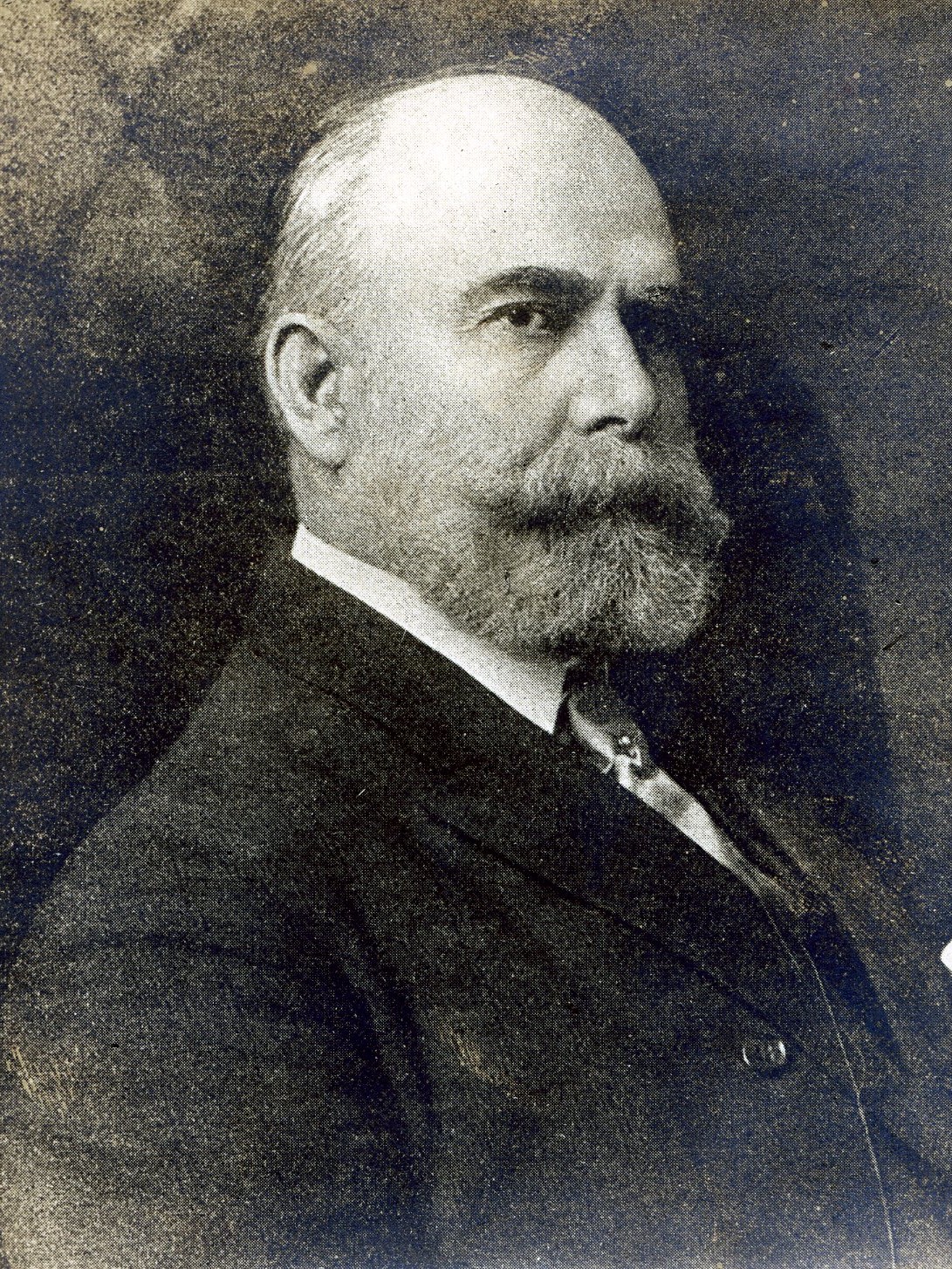Journalist
Centurion, 1920–1925
Born 13 August 1852 in Williamstown, Massachusetts
Died 11 December 1925 in Springfield, Massachusetts
Buried Oak Grove Cemetery , Springfield, Massachusetts
, Springfield, Massachusetts
Proposed by Charles R. Miller and Arthur H. Masten
Elected 7 February 1920 at age sixty-seven
Century Memorial
There are one or two professions, concerning the proper conducting of which the public at large is more sure of its own opinion than life-long practitioners are of theirs. One of those professions is journalism. Whether to give the newspaper-reading public what it wants or to make that public want what it ought, what the public actually does want, and how to keep the ledger balanced in the right-colored ink if the public does not seem to want what the newspaper prints—these problems are discussed in managing editors’ offices, but rarely with the cocksure certainty which pervades their discussion in club-room and pulpit. It might perhaps be supposed that the most conscientious conductor of a newspaper would at any rate stipulate for giving his reader the news, and would define the news as anything about which he himself longed for information. Yet there occurs to mind the story of a New York newspaper editor of high repute, an old-time member of the Century, who excluded reports of prize-fights from his columns but sent anxiously down-stairs to his news department when the fight was “on,” to get the latest bulletins. A dozen years ago it used to be the conundrum of journalism why Boston, the latter-day seat of Attic culture, possessed only one respectable newspaper and that an evening sheet, while Chicago, the most purely mundane of communities, counted four or five successful daily publications with a serious purpose. The profession itself came long ago to the conclusion that, be the reading public what it may, it is the man behind the newspaper who shapes its character for good or ill. Two of the men who shaped it for the best are on our list tonight [cf. Victor F. Lawson].
Whatever may have happened in Boston, there are corners of New England where the highest type of journalism has flourished. That remarkable daily newspaper, the Springfield Republican, which for three-quarters of a century has collected and distributed the legitimate news of Western Massachusetts, which fought unremittingly in its editorial columns for political independence, and which may honestly be said to have moulded New England public opinion during the political battles between 1860 and 1896, reflected the mind and character of two men. When Samuel Bowles ended his career in 1878, his work was taken up with equal resolution by Solomon Bulkley Griffin, who was the soul of the Republican in the next four decades. Like Bowles, Griffin considered the passing of honest editorial judgment on controverted issues one of the highest human responsibilities. His trenchant pen at no time flinched from defense of what he thought to be just and right, or from attack on what, even in the highest places, he thought to be corrupt and wrong. But Griffin’s conception of good journalism covered details as well as policies. When he described his predecessor as “punctilious about the niceties of newspaper-making in typography and text,” he might have been describing himself. The whole paraphernalia of Hearst expedients were anathema; even in the matter of emphasizing important words or names by printing them in capital letters, he himself used to quote the saying of the irreverent Springfield compositors that “only Jesus Christ and Sam Bowles were capitalized in the Republican.” To that “display head” which perverts the English language to get words short enough to fit the column, which never “attacks” ideas or policies but always “raps” them, never “praises” but always “lauds,” never “divulges” secrets, but always “bares” them, never “protests against” anything but always “protests” it, Griffin was the unrelenting foe.
A newspaper with such practices and principles was sure of its audience. Notwithstanding the fact, of which his own book of reminiscence gives half-amusing reminder, that current events were graded in Griffin’s journalistic mind according as they occurred in Springfield, in New England, or only in the United States at large, the Republican maintained from first to last a recognized individual influence, not alone with the New England reading public but in editorial conference-rooms throughout the country.
Alexander Dana Noyes
1926 Century Association Yearbook

